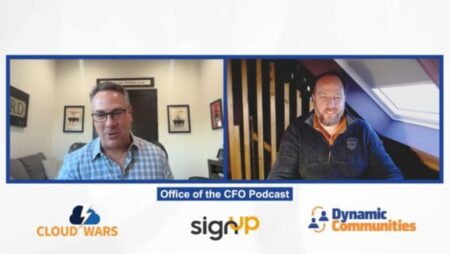
With the pace of change and jaw-dropping announcements emerging from the leaders in AI innovation, it takes a lot for us here at Cloud Wars to stop us in our tracks. However, news from Microsoft has done just that.
On the back of ServiceNow‘s intent to adopt Google’s Agent2Agent (A2A) protocol and the Model Context Protocol, Microsoft has announced that it is bringing A2A to Azure AI Foundry and Copilot Studio. We were alerted to the news through a LinkedIn post from Charles Lamanna, Microsoft’s corporate vice president, business and industry copilot, and it’s worth including that in its entirety, because it does a great job of summarizing the gravity of Microsoft’s decision:
We are entering a new era in business where agents will not only act independently but also work together seamlessly as a team. To bring this vision to life, open protocols like Model Context Protocol (MCP) and Agent2Agent (A2A) are essential for agent interoperability.
I am excited to announce that Copilot Studio and Azure AI Foundry will support A2A, building on the MCP support we announced earlier this spring. We have also joined the A2A working group on GitHub to help shape the spec and tooling.
This is a significant step forward, and I can’t wait to see how it will transform the way we work.

AI Agent & Copilot Summit is an AI-first event to define opportunities, impact, and outcomes with Microsoft Copilot and agents. Building on its 2025 success, the 2026 event takes place March 17-19 in San Diego. Get more details.
Why Does It Matter?
Interoperability is rapidly becoming a key topic in discussions about the rise of agentic AI. Leaders in the Cloud and AI Wars have readily provided the infrastructure for agentic AI, the agents themselves, and the tools necessary for customized builds. The market is abundant in capabilities.
However, a surplus of high-performance AI agents is of little use if they cannot communicate with one another, especially at the enterprise level. MCP and A2A are enabling organizations to overcome these roadblocks by offering plug-and-play interoperability. In a blog post about the A2A announcement, Microsoft refers to… “a new era of software design where intelligence is no longer tied to static interfaces or single applications.”
This new era is the agentic AI era, and for it to be fully realized, it needs interoperability. Bringing in the most commonly used protocols will enable Microsoft agents to communicate and collaborate across clouds, company platforms, and frameworks.
Specifically, support for A2A in Azure AI Foundry enables customers to build complex, multi-agent workflows that integrate internal copilots, partner tools, and production infrastructure while maintaining governance and SLAs. In Copilot Studio, agents can securely invoke external agents, including those developed on other platforms or hosted outside of Microsoft.
It isn’t too extravagant to say that this news from Microsoft has ushered in the era of agentic AI. Why? Because Microsoft’s reach is gargantuan. Over 70,000 customers are already building in Azure AI Foundry, while more than 230,000 organizations, including 90% of the Fortune 500, have used Microsoft Copilot Studio.
Yet, even these numbers pale in comparison when you consider the hundreds of millions of monthly Microsoft 365 users — many with direct access to Copilot.
Ask Cloud Wars AI Agent about this analysis










